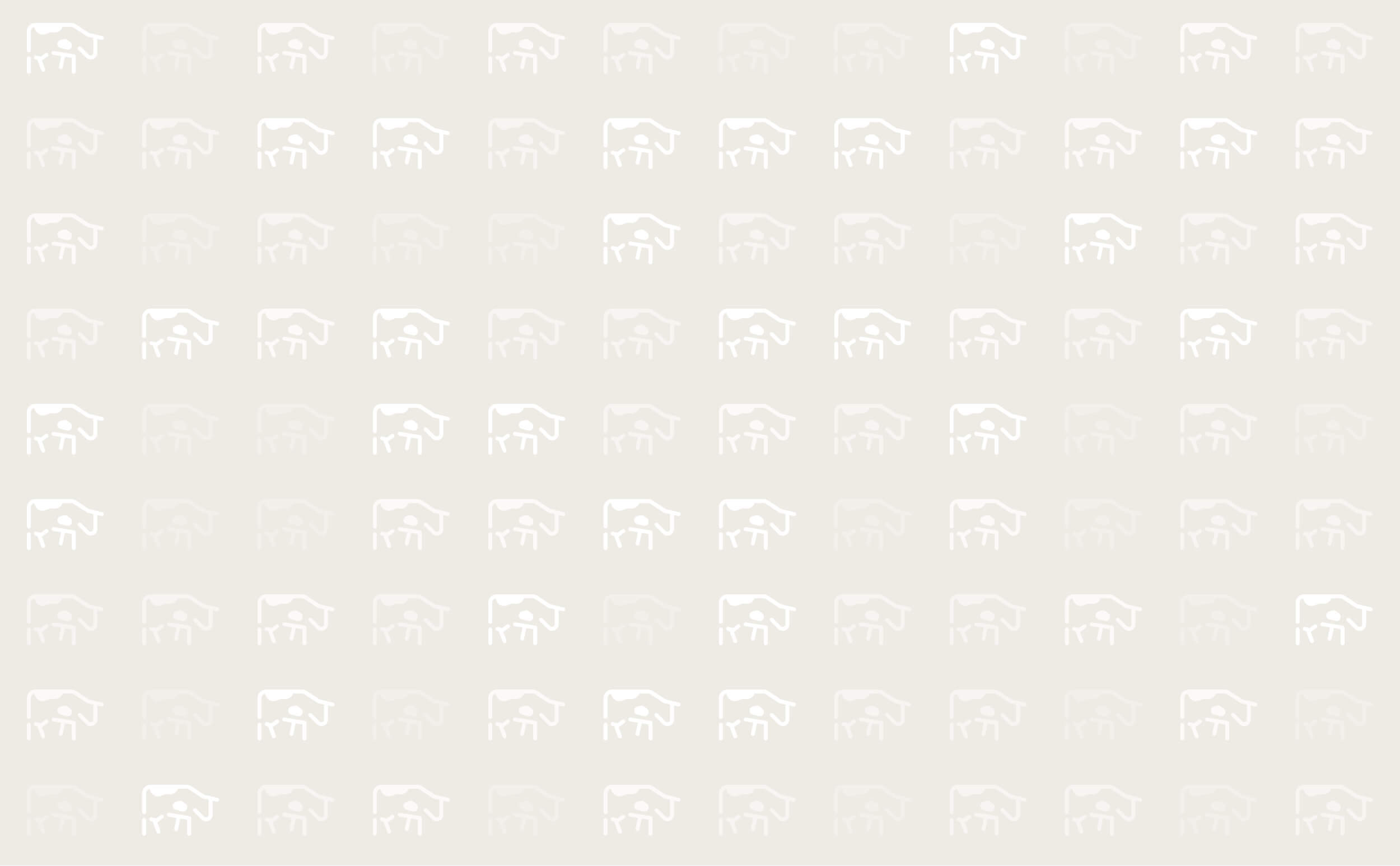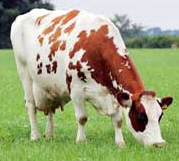



Irish Moiled
History
The Irish Moiled is one of the rarest cattle breeds which originated in Ireland. Traditionally a dairy cow, it has earned the reputation as a truly dual purpose breed, producing both high quality beef and milk from poor quality grazing.In the 20th Century the breed declined in numbers as it was superseded by new more specialised breeds.
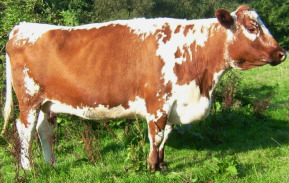 Photo courtesy of Ystrad Traditional Organics, www.ystradorganics.co.uk |
The Society was formed in 1926 to develop and improve the breed. In 1982 the Society was revived with the encouragement of the Rare Breeds Survival Trust. The breed has enjoyed valuable research and guidance from both the Trust and the Genetics Department of Liverpool University.
The Society has a well established DNA testing programme to ensure validity of pedigrees and the integrity of this important gene pool.
In 2008 a breed conservation strategy was launched. It is hoped that this strategy will help maintain the genetic base of the breed and also reduce to a minimum any increase in inbreeding within the breed.
Today there are approximately 140 members of the Society with over forty breeders on the mainland of Great Britain and the others being in Northern Ireland and the South of Ireland.
Characteristics
The Irish Moiled is a hornless breed with a varied colouration, characteristically red in colour marked by a white line or 'finching' on the back and under parts, but can vary from white with red ears to nearly all red. The name Moile is derived from the Gaelic language and relates to the distinctive dome or mound on top of the head. The Irish Moiled is of medium size for example, a mature cow can weigh up to 650kg.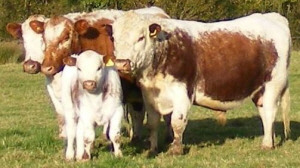 Photo courtesy of Ystrad Traditional Organics, www.ystradorganics.co.uk |
Irish Moiled bulls are normally of an excellent temperament making their use in even the smallest herds commonplace. Surplus males sell well as steers finishing between 20-24 months on good quality forage diet to grade 03, at carcass weights from 220-260 kg. Where forage is poor, supplements will be required, but care must be taken to avoid them becoming over fat. The beef is of superb quality with a distinctive flavour. Rapidly growing specialist markets for the beef exist both in Great Britain and Ireland.
The Irish Moiled cow can be relied upon to produce a calf every 12 months if kept in good health and body condition and is running with a bull. Artificial insemination is also successful. They will calve to a continental bull without difficulty and have sufficient milk to do a good job with the cross calf. They will continue to breed satisfactorily until at least ten years of age. Many have continued to 15 years and beyond.
Tradition has it that they are "big bellied" to consume and digest large quantities of poorer quality forage which was their traditional diet. They are ready browsers, especially of willow ash and ivy, which makes them ideal in extensive or conservation grazing situations.
In the dairy, yields of up to 5000 litres are being recorded on these extensive systems. In the suckler herd the cow will "milk off her back" to give the calf the best start in life.
They are sound in hoof and leg and at home on most types of terrain. Moileds grow a thick winter coat and out-winter happily although being a heavy animal they will 'poach' soft ground. Silage or hay will be needed for out-wintering in most situations. Mineral supplements are advisable although concentrates should not be required unless cows start winter with no fat on their backs.
Female calves are either retained within the herd or find a ready market with other breeders of pedigree Irish Moileds.
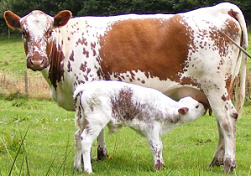 Photo courtesy of Ystrad Traditional Organics, www.ystradorganics.co.uk |
Statistics
Comparative
Distribution
This breed in being conserved and produced in Ireland and Great Britain.References (the above information was cited from the following sites)
www.irish moiledcattlesociety.com
www.ystradorganics.co.uk

